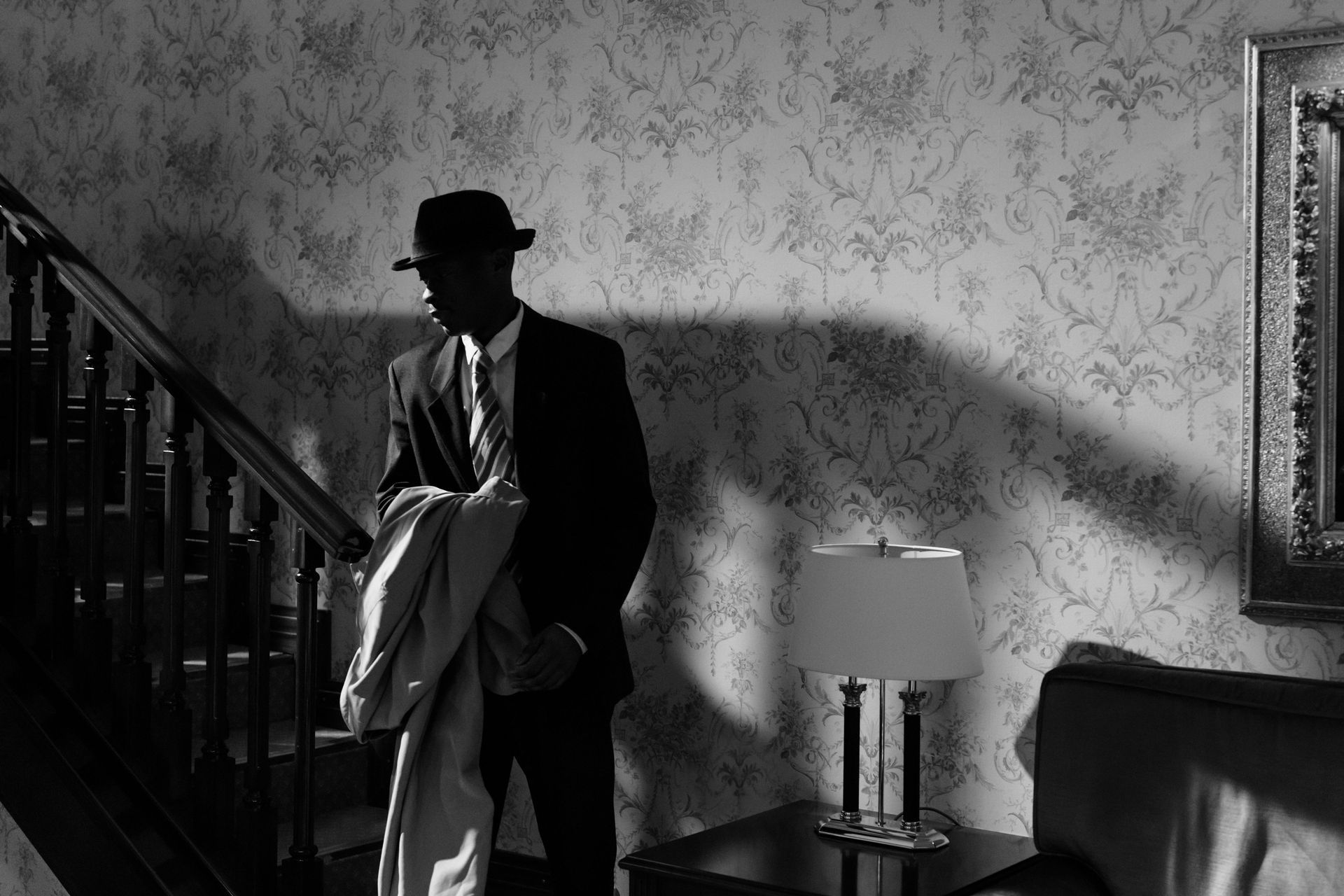Latest Blog Posts
August 15, 2019
August 15, 2019
August 15, 2019
Follow us on Facebook
Certification
CA Private Investigator
License No. 28286
PI Services
Locations Served
Client Intake Forms
Common Legal Defenses to California Crimes
1) Accidents
2) Alibis
3) Coerced Confessions
4) Double Jeopardy
5) Duress
6) Entrapment
7) False Accusations / Wrongful Arrest
8) Insanity
9) Lack of Probable Cause
10) Mistaken Identity
11) Mistake of Fact
12) Necessity
13) Parent’s Right to Discipline a Child
14) Police Misconduct
15) Self-Defense / Defense of Others
16) Unconsciousness
Voluntary / Involuntary Intoxication
After reading this article if you have additional questions, we invite you to contact us at 714-592-8000.
1) Accidents
Accidents happen. Period. Fortunately, California law recognizes this and excuses alleged criminal conduct that occurs accidentally. If you accidentally commit an act that amounts to a crime… that is, you do so without criminal intent or negligence… you should bear no criminal liability.
But in some accident cases, prosecutors may still file charges if it appears you acted with ordinary or criminal negligence. Simply put, ordinary negligence takes place when you fail to act as a “reasonably prudent” person would have. California defines criminal negligence as acting with a reckless “I don’t care what happens” attitude.2 A car accident that arises out of a street race or drunk driving is an example.
As long as you didn’t act with negligence and weren’t motivated by any other criminal purpose, the legal defense of accident should absolve you of liability.
2) Alibi
“Alibi” is a Latin word that means “in another place”. If you are accused of a crime… but could not have committed it because at the time it was committed you were somewhere else… then you have an alibi.
If we can corroborate your alibi with witnesses, surveillance tapes, credit card receipts or other evidence, this should go a long way towards refuting any allegations that you are the culprit.
Example: The police arrest you for a gas station robbery that took place last Saturday in Rancho Cucamonga. They arrest you because you match the description given by the attendant (and even have a prior robbery conviction).
However, you were at a family reunion last Saturday in Oakland. There are pictures of you at the reunion and you have a plane ticket showing that you flew there Saturday morning.
For further discussion of when evidence of an alibi is useful, visit our page on alibi as a legal defense in California criminal cases.
3) Coerced Confessions
Police may not use overbearing measures to coerce an involuntary confession. Examples of improper or illegal interrogation tactics may include:
continuing to question you even after you ask for a lawyer,
depriving you of food, water, or sleep,
“beating” you (or threatening harm or greater punishment), and/or
making false promises of leniency in exchange for a confession.
These tactics can be so overbearing that, as studies have shown, it’s not uncommon for innocent people to acquiesce and admit to criminal acts they never actually committed.
If we can show that the police coerced you into a confession, then (1) the judge may exclude your confession from evidence, or (2) the case should be dropped altogether if indeed you got pressured into confessing to a crime you didn’t commit.
Please read our article on False & Coerced Confessions Leading to Wrongful Conviction in California for further discussion.
4) Double Jeopardy
The “double jeopardy” clauses of the U.S. Constitution and the California Constitution protect you from (1) being prosecuted a second time for the same offense following an acquittal or a conviction (but typically not a mistrial), and (2) facing multiple punishments for the same offense.
Let’s say that a jury acquits you of your California Vehicle Code 23152 DUI charges3. Double jeopardy prevents the prosecutor from claiming that he/she subsequently received additional evidence and would like to retry the case. Being placed “once in jeopardy” acts as a permanent bar to retrial for the same offense.
To understand when double jeopardy does and does not apply, please read our page Double Jeopardy in California criminal law.
5) Duress
If you commit a crime because you reasonably believe your life is in immediate danger, California law excuses your criminal conduct.4
“Duress” excuses criminal culpability when you only commit the crime because another person’s threats or menacing actions compel you to do so.5
But there’s one crime that duress does not excuse: California Penal Code 187 murder.6 You may not kill another person to save your own life unless it is in self-defense.7 If, however, you to commit a felony because of duress… and you accidentally or negligently kill someone during the commission of that felony…California’s felony-murder rule would not be triggered. This means that you would not automatically be held criminally liable for that murder.
For a more detailed discussion, visit our page on “duress or threats as a legal defense in California.”
6) Entrapment
California’s entrapment defense applies to situations where you would not have committed the alleged offense but for for the harassment, threats, or coercion of the police or their agents. If you were entrapped, it basically means that the police… who were most likely undercover… persuaded you to commit a crime.9
Entrapment is frequently raised as a defense to California sex offenses and California drug crimes.10 It is perhaps most prominently raised in connection with sting operations run by undercover decoy officers trying to make busts for
Penal Code 647(b), California’s prostitution law,
Penal Code 647(a), lewd acts in public,
Penal Code 311 child pornography, and
possessing and/or selling illegal substances.11
Entrapment is a legal defense that you must prove by a preponderance of the evidence.12 A “preponderance of the evidence” means that it is more likely than not that the only reason you committed the alleged crime was because of the overreaching police conduct.
7) False Accusations / Wrongful Arrest
Unfortunately, it is not at all uncommon for people to get prosecuted based on false allegations.
Jealousy… revenge… anger… attempts to cover up one’s own criminal involvement… these are just a few of the reasons why someone may falsely accuse an innocent person of a crime.”
False allegations are especially common in California domestic violence cases and in California Penal Code 273d PC child abuse cases.14 The good news is that we know the best ways to investigate these types of allegations to reveal the truth… and to clear your name.
8) Insanity
In California, the test for determining whether a defendant is legally insane is known as the M’Naghten test. Essentially a test of “right and wrong,” the M’Naghten standard holds that if the defense can prove that the defendant committed the crime only because
he/she didn’t understand the nature of his/her act, OR
couldn’t distinguish right from wrong,
then California criminal law excuses that conduct.15
The insanity defense… just like the legal defense of entrapment … needs to be proven by a preponderance of the evidence.16 If the defendant is found not guilty by reason of insanity, he/she will likely be committed to a psychiatric facility until the court believes that he/she is no longer a threat to society.
For further discussion, please visit our page on the “not guilty by reason of insanity” defense in California law.
9) Lack of Probable Cause
The California search and seizure rules require police to have probable cause before they can detain you or arrest you. “Probable cause” essentially means that a reasonable and cautious officer would believe that criminal activity is or was taking place based on the surrounding circumstances.
If it appears the cops stopped, detained or arrested you without probable cause, your criminal defense attorney may file a motion to suppress. At a “suppression motion” hearing (per California Penal Code 1538.5), your lawyer asks the court to exclude any evidence that was obtained via an improper search and seizure.17 If the motion is granted, your case will oftentimes be dismissed.
10) Mistaken Identity
Mistaken eyewitness identification is the leading cause of wrongful conviction. It can happen because:
you (your physical description, your clothes, your car, etc.) happen resemble the actual perpetrator,
someone assumes you are to blame for a criminal act (for example, an elder’s doctor reports you for violating Penal Code 368 PC, California’s elder abuse law18 because he sees bruises and incorrectly assumes you, the primary caretaker, must have inflicted them), or
someone points the finger at you to cover-up his/her own criminal liability.
Example: A mother finds a large quantity of drugs hidden in her son’s room. When she confronts him, instead of telling her they’re his, he lies and tells her that “Johnny” threatened to kill him if he didn’t store the drugs for him. The mother reports Johnny to the police.
11) Mistake of Fact
If you act under an honest and reasonable mistake of fact, you are not guilty of a crime.19 If, for example, you are accused of stealing your neighbor’s lawnmower… but you did so because you believed it was the one you previously lent him that he never returned to you… then you aren’t guilty of theft.
But, the old-adage is also true: ignorance of the law is not a defense.20 This means that you can’t break a law just because you don’t know it’s a law. For example, if you buy alcohol for a minor, prosecutors could charge you with contributing to the delinquency of a minor. The fact that you didn’t know such conduct was illegal will not excuse your actions.
For a further discussion, visit our page on mistake of fact or law as a legal defense in California criminal law.
12) Necessity
The California legal defense of “necessity” excuses criminal conduct when it is done only to avoid an even greater harm. If you reasonably believe that you or another person are about to suffer significant bodily harm… and there is no other reasonable legal alternative to engaging in the criminal conduct… you may be entitled to an acquittal of the charged offense(s).21
For example, suppose someone is chasing you and trying to kill you. You charge up to a random house, break through a window, take shelter and call 911. Normally breaking into a house might constitute trespass, burglary and Penal Code 594 vandalism.22 But here, your actions would probably be excused as being done out of necessity.
Necessity is another California legal defense that must be proven by a preponderance of the evidence. 23
For a detailed discussion, visit our page on the “necessity defense” in California criminal law.
13) Parents Right to Discipline a Child
Parents have a legal right to discipline their children in a reasonable manner, which includes inflicting corporal (or physical) punishment. If you are accused of Penal Code 273d, California’s child abuse law, or of Penal Code 273a, California’s child endangerment law, you may be entitled to an acquittal if you can demonstrate that your acts were not unreasonable or unjustified under the circumstances.
14) Police Misconduct
It’s not at all uncommon to see acts of misconduct, abuse and excessive force by California police, such as
- planting evidence
- lying or embellishing facts in their crime reports or courtroom testimony, or
- unnecessarily using tasers or pepper spray on cooperative subjects
When we can identify and prove such acts of police misconduct, it may give us leverage towards winning your criminal case. It may also allow us to press civil rights claims and seek money damages.
15) Self-Defense / Defense of Others
Under California’s self-defense law, if you injure or kill another person in self-defense or in defending another person, your conduct will be excused. But your actions must be reasonable under the circumstances.25
In other words, if you believe that you or another person face imminent danger… and you only use as much force as is reasonably necessary to alleviate that danger… then you have a valid claim of self-defense.
16) Unconsciousness
If you are unconscious while you commit a crime, California law excuses your actions.26 This legal defense is applicable to people who, for example, commit criminal acts while
- sleeping,
- delirious,
- suffering from an epileptic seizure, or
- who are involuntarily intoxicated.
On that note, it is important to understand that if you commit a crime while unconscious or sleeping… but while voluntarily intoxicated… you will still be held criminally liable. The most common example of this is “sleep-driving” while under the influence of Ambien or Lunesta.
17) Voluntary and Involuntary Intoxication
Voluntary intoxication doesn’t typically serve as a valid criminal defense. But it may bear on the issue of whether you possessed the requisite mental state to commit certain “specific intent” crimes. “Specific intent” means that you specifically intended the consequences of your act (California theft offenses are examples of “specific intent” crimes).28
While “unconsciousness” generally serves as a legal defense to a crime29 (discussed above), this isn’t the case if your unconsciousness stemmed from voluntarily intoxication.30 For example, unconsciousness may give you a defense to a vehicular manslaughter charge if you fell asleep at the wheel. But if you passed out at the wheel due to drug or alcohol consumption, it probably would not.
If you are involuntarily intoxicated, that generally provides a complete defense to most any crime.
This would be the case if, for example, someone secretly slipped a drug in your drink… or a doctor prescribed you a sedative without warning you of the side effects.
But you are only “involuntarily” intoxicated if you didn’t voluntarily consume any alcohol and/or drugs.31 If, for example, you voluntarily smoked a joint… but didn’t realize that it was actually laced with PCP… you can’t then claim involuntary intoxication.
For a more detailed discussion, visit our page on drug or alcohol intoxication as a legal defense in California criminal law.
Call us for help…
If you would like more information or, to discuss your case confidentially with one of our California criminal defense investigators or a lawyer, please contact us at 858-750-8887.
Our California criminal law private investigations offices are located in and around Los Angeles, Orange County, Riverside, San Bernardino, Ventura, San Jose, Oakland, the San Francisco Bay area, and several nearby cities.
We additionally have criminal law private investigations offices nationwide through a network of private investigators who are ready to help and assist you at any time..33
Legal References:
1 California Penal Code 26 PC — Persons capable of committing crime; exceptions. (“All persons are capable of committing crimes except those belonging to the following classes… Five–Persons who committed the act or made the omission charged through misfortune or by accident, when it appears that there was no evil design, intention, or culpable negligence… ”)
See also California Jury Instructions — Criminal. CALJIC 4.45 Accident and Misfortune as California legal defenses. (“When a person commits an act or makes an omission through misfortune or by accident under circumstances that show [no] [neither] [criminal intent [n]or purpose,] [nor] [[criminal] negligence,] [he] [she] does not thereby commit a crime.”) And use notes state: (“If this instruction in its entirety is given, an instruction defining [California’s standard of] “criminal negligence” must be given sua sponte. (People v. Brucker, 148 Cal.App.3d 230, 239–240, 195 Cal.Rptr. 808, 812–813 (4th Dist.1983).) For such a definition, see CALJIC 3.36. The bracketed words “criminal” should be deleted if the instruction is given in a misdemeanor vehicular manslaughter prosecution. If the crime charged can only be committed with general or specific intent, do not instruct on criminal negligence. (See People v. Lara, 44 Cal.App.4th 102, 51 Cal.Rptr.2d 402 (2d Dist.1996).)”)
2 People v. Odom (1991) 226 Cal.App.3d 1028 summarizes California’s definition of criminal negligence. (“[“Criminal negligence” refers to negligent conduct which is aggravated, reckless or flagrant and which is such a departure from the conduct of an ordinarily prudent, careful person under the same circumstances as to be contrary to a proper regard for [human life] [danger to human life] or to constitute indifference to the consequences of that conduct. The facts must be such that the consequences of the negligent conduct could reasonable have been foreseen and it must appear that the [death] [danger to human life] was not the result of inattention, mistaken judgment or misadventure but the natural and probable result of aggravated, reckless or flagrantly negligent conduct.]”)
3 California Vehicle Code 23152 VC — Driving under the influence (DUI). (“(a) It is unlawful for any person who is under the influence of any alcoholic beverage or drug, or under the combined influence of any alcoholic beverage and drug, to drive a vehicle. (b) It is unlawful for any person who has 0.08 percent or more, by weight, of alcohol in his or her blood to drive a vehicle.”)
4 California Penal Code 26 PC — Persons capable of committing crime; legal defenses. (“All persons are capable of committing crimes except those belonging to the following classes… Six–Persons (unless the crime be punishable with death) who committed the act or made the omission charged under threats or menaces sufficient to show that they had reasonable cause to and did believe their lives would be endangered if they refused.”)
5 People v. Steele (1988) 206 Cal.App.3d 703, 706. (“The [California legal] defense of duress, unlike the necessity justification, requires that the threat or menace be accompanied by a direct or implied demand that the defendant commit the criminal act charged.”)
6 California Penal Code 187 — Murder. (“(a) Murder is the unlawful killing of a human being, or a fetus, with malice aforethought.”)
7 People v. Anderson (2002) 28 Cal.4th 767, 770. (“… fear for one’s own life does not justify killing an innocent person. Duress is not a [California legal] defense to murder.”)
8 See same at 784. (“On a final point, we note, contrary to the Attorney General’s argument, that duress can, in effect, provide a defense to murder on a felony-murder theory by negating the underlying felony. (See People v. Anderson (1991) 233 Cal.App.3d 1646, 1666-1667, fn. 18, 285 Cal.Rptr. 523; Perkins & Boyce, Criminal Law, supra, ch. 9, § 2, pp. 1058-1059; LaFave, Criminal Law, supra, § 5.3(b), pp. 468-469.) If one is not guilty of the underlying felony due to duress, one cannot be guilty of [the California] felony murder [rule] based on that felony. Here, for example, the court instructed the jury that duress could be a defense to the kidnapping charge. It also instructed on felony murder with kidnapping as the underlying felony. If the jury had found defendant not guilty of kidnapping due to duress (it did not), it could not have found that he killed during the commission of that kidnapping. Defendant could not have killed during the perpetration of a crime of which he was innocent.”)
See also California Penal Code 189 – Murder. (“All murder which is perpetrated by means of a destructive device or explosive, a weapon of mass destruction, knowing use of ammunition designed primarily to penetrate metal or armor, poison, lying in wait, torture, or by any other kind of willful, deliberate, and premeditated killing, or which is committed in the perpetration of, or attempt to perpetrate, arson, rape, carjacking, robbery, burglary, mayhem, kidnapping, train wrecking, or any act punishable under [California Penal Code] Section 206, 286, 288, 288a, or 289, or any murder which is perpetrated by means of discharging a firearm from a motor vehicle, intentionally at another person outside of the vehicle with the intent to inflict death, is murder of the first degree. All other kinds of murders are of the second degree.”)
See also People v. Cavitt (2004) 33 Cal.4th 187, 197. (“The purpose of the felony-murder rule is to deter those who commit the enumerated felonies from killing by holding them strictly responsible for any killing committed by a cofelon, whether intentional, negligent, or accidental, during the perpetration or attempted perpetration of the felony. ( Burton, supra, 6 Cal.3d at p. 388, 99 Cal.Rptr. 1, 491 P.2d 793.)
9 People v. Barraza, (1979) 23 Cal.3d 675, 689. (Summarizing California’s entrapment defense… “For all the foregoing reasons we hold that the proper test of entrapment in California is the following: was the conduct of the law enforcement agent likely to induce a normally law-abiding person to commit the offense?”)
See also CALJIC 4.60 — Entrapment. (“It is a [California legal] defense to a criminal charge that the commission of the alleged criminal act, was induced by the conduct of law enforcement agents or officers [or persons acting under their direction, suggestion or control] when the conduct would likely induce a normally law-abiding person to commit the crime. To establish this defense the defendant has the burden of proving by a preponderance of the evidence that the conduct of the law enforcement agents or officers [or persons acting under their direction, suggestion or control] would likely induce a normally law-abiding person to commit the crime.”)
10 California sex offenses and California drug crimes are areas of the law that often involve undercover sting operations. These officers are placed undercover in an effort to “catch” criminals in the act of engaging in Penal Code 647(b), California’s prostitution law, Penal Code 647(a) lewd acts in public, Penal Code 311 child pornography, and buying, selling, and possessing illegal substances, more commonly referred to as drugs.
11 See same.
12 See CALJIC 4.60, endnote 10, above.
13 Van Nuys criminal defense attorneys know the most effective ways to present California legal defenses. Criminal defense investigators defends clients throughout Los Angeles and Ventura County, including the Ventura Hall of Justice, the Van Nuys courthouse, the Pasadena courthouse, the Burbank courthouse, theGlendale courthouse, the Lancaster courthouse, the San Fernando courthouse, and the Criminal Courts Building.
14 Because California domestic violence cases and California Penal Code 273d child abuse cases often arise out of emotional, highly-charged situations, partners, spouses, and even children are frequently guilty of making false accusations in an effort to gain an upper-hand over the accused.
15 California Penal Code 25 – Insanity as a California legal defense. (“… (b) In any criminal proceeding, including any juvenile court proceeding, in which a plea of not guilty by reason of insanity is entered, this defense shall be found by the trier of fact only when the accused person proves by a preponderance of the evidence that he or she was incapable of knowing or understanding the nature and quality of his or her act and of distinguishing right from wrong at the time of the commission of the offense.”)
See also People v. Horn (1984) 158 Cal.App.3d 1014, 1032. (“Accordingly, we hold that Penal Code section 25, subdivision (b), reinstates the California M’Naghten right and wrong test as the standard for the insanity defense in this state.”…and at 1027, “The liberalization of the M’Naghten rule, which we have already described, reached its zenith in Wolff. There the court approved this “commendably broad interpretation upon the M’Naghten ‘knowledge’ test: …’The test of sanity is this: First, did the defendant have sufficient mental capacity to know and understand what he was doing, and second, did he know and understandthat it was wrong and a violation of the rights of another?”’ ( People v. Wolff, supra., 61 Cal.2d at p. 801; italics in original.) As can be seen, this test of sanity uses the conjunctive “and” construction. Conversely, the test of insanity necessarily must use the disjunctive “or” form. In order to be sane, “’the defendant must be able to know and understand the nature and quality of his act and to distinguish between right and wrong at the time of the commission of the offense.”’ ( Ibid., italics in original.) Thus if a defendant knows and understands the nature and quality of his act but does not know it is wrong, he is, by definition, insane. Hence the reciprocal tests of sanity and insanity were correctly stated in CALJIC No. 4.00 (3d ed. 1970): “If you find that the defendant was capable of knowing and understanding the nature and quality of his act and, in addition, was capable of knowing and understanding that his act was wrong, you will find that he was legally sane. However, if you find that the defendant was not capable of knowing or understanding the nature and quality of his act, you will find that he was legally insane; or, if you find that he was incapable of knowing or understanding that his act was wrong, you will find that he was legally insane.” The confusion over the correct usage of the conjunctive/disjunctive form of the M’Naghten rule thus arises from the failure to distinguish between the alternative definitions of sanity and insanity. This not uncommon confusion is evident in the Proposition 8 formulation of the M’Naghten test. We accept this blurred statement for what it appears to be, a careless draft… ”) This case goes into a lengthy discussion of whether the test requires a defendant to meet both prongs or simply one – although the test says “and”, the court held that was the result of “careless drafting” and requires only that a defendant meet one of the prongs of the M’Naghten test (that is, Penal Code 25(b)).
See also CALJIC 4.00 — Insanity as a California legal defense. (“A person is legally insane when by reason of mental disease or mental defect, [he] [she] was incapable at the time of the commission of the crime of one of the following: [1] Knowing the nature and quality of [his] [her] act; or [2] Understanding the nature and quality of [his] [her] act; or [3] Distinguishing what is legally right from what is legally wrong; or [4] Distinguishing what is morally right from what is morally wrong.” Italics added)
16 See Penal Code 25(b), endnote 16, above.
17 A motion to suppress evidence is made via at Penal Code 1538.5 hearing. California Penal Code 1538.5 — Motion to return property or suppress evidence. (“(a)(1) A defendant may move for the return of property or to suppress as evidence any tangible or intangible thing obtained as a result of a search or seizure on either of the following grounds: (A) The search or seizure without a warrant was unreasonable…”)
18 Penal Code 368, California’s elder abuse law penalizes a variety of physical, emotional, and financial that are committed against persons who are 65 years or older.
19 CALJIC 4.35 — Ignorance or mistake of fact as a California legal defense. (“An act committed or an omission made in ignorance or by reason of a mistake of fact which disproves any criminal intent is not a crime. Thus a person is not guilty of a crime if [he] [she] commits an act or omits to act under an actual [and reasonable] belief in the existence of certain facts and circumstances which, if true, would make the act or omission lawful.”)
20 CALJIC 4.36 — Ignorance or mistake of law as a California legal defense. (“When a person voluntarily commits an act or engages in conduct which the law declares is a crime, it is no defense that [he] [she] did not know that the act or conduct was unlawful or that [he] [she] believed it to be lawful.”)
21 CALJIC 4.43 – California’s legal defense of necessity. (“A person is not guilty of a crime when [he] [she] engages in an act, otherwise criminal, through necessity. The defendant has the burden of proving by a preponderance of the evidence all of the facts necessary to establish the elements of this defense, namely: [1] The act charged as criminal was done to prevent a significant and imminent evil, namely, [a threat of bodily harm to oneself or another person] [or] [ ]; [2] There was no reasonable legal alternative to the commission of the act; [3] The reasonably foreseeable harm likely to be caused by the act was not disproportionate to the harm avoided; [4] The defendant entertained a good-faith belief that [his] [her] act was necessary to prevent the greater harm; [5] That belief was objectively reasonable under all the circumstances; [and] [6] The defendant did not substantially contribute to the creation of the emergency[.] [; and [7] The defendant reported to the proper authorities immediately after attaining a position of safety from the peril.]”)
22 California Penal Code 594 PC — Vandalism. (“(a) Every person who maliciously commits any of the following acts with respect to any real or personal property not his or her own, in cases other than those specified by state law, is guilty of vandalism: (1) Defaces with graffiti or other inscribed material. (2) Damages. (3) Destroys.”)
23 See same.
24 CALJIC 4.80 — Parent’s Right to Discipline Child. (“It is lawful for a parent reasonably to discipline a child, and in doing so to administer reasonable punishment, including the infliction of reasonable corporal punishment. However, it is unlawful for a parent to inflict unjustifiable punishment upon a child. Corporal punishment is not justified and is therefore unlawful if the punishment was not reasonably necessary, or was excessive, under the circumstances. The defendant contends that [he] [she] was lawfully disciplining the child. The People have the burden of proving that the force applied to the child was unlawful, that is, not reasonably necessary or excessive, under the circumstances. If you have a reasonable doubt that unlawful force was applied, you must find the defendant not guilty. If you find that the use of force was not reasonably necessary or was excessive, you must determine what crime, if any, was committed in light of the other instructions.”)
See also Penal Code 273(a), California’s child endangerment law. (“(a) Any person who, under circumstances or conditions likely to produce great bodily harm or death, willfully causes or permits any child to suffer, or inflicts thereon unjustifiable physical pain or mental suffering, or having the care or custody of any child, willfully causes or permits the person or health of that child to be injured, or willfully causes or permits that child to be placed in a situation where his or her person or health is endangered, shall be punished by imprisonment in a county jail not exceeding one year, or in the state prison for two, four, or six years.(b) Any person who, under circumstances or conditions other than those likely to produce great bodily harm or death, willfully causes or permits any child to suffer, or inflicts thereon unjustifiable physical pain or mental suffering, or having the care or custody of any child, willfully causes or permits the person or health of that child to be injured, or willfully causes or permits that child to be placed in a situation where his or her person or health may be endangered, is guilty of a misdemeanor.”)
25 CALCRIM 3470 – California’s legal right to self-defense or defense of another (Non-Homicide). (California’s self-defense law states “The defendant acted in lawful (self-defense/ [or] defense of another) if: [1] The defendant reasonably believed that (he/she/ [or] someone else/ [or] <insert name of third party<) was in imminent danger of suffering bodily injury [or was in imminent danger of being touched unlawfully]; [2] The defendant reasonably believed that the immediate use of force was necessary to defend against that danger; AND [3] The defendant used no more force than was reasonably necessary to defend against that danger.”)
See also CALCRIM 505 — Justifiable Homicide: Self-Defense or Defense of Another. (“The defendant acted in lawful (self-defense/ [or] defense of another) if: [1] The defendant reasonably believed that (he/she/ [or] someone else/ [or] <insert name or description of third party<) was in imminent danger of being killed or suffering great bodily injury [or was in imminent danger of being (raped/maimed/robbed/ <insert other forcible and atrocious crime<)]; [2] The defendant reasonably believed that the immediate use of deadly force was necessary to defend against that danger; AND [3] The defendant used no more force than was reasonably necessary to defend against that danger.”)
26 California Penal Code 26 PC — Persons capable of committing crime; California legal defenses. (“All persons are capable of committing crimes except those belonging to the following classes… Four–Persons who committed the act charged without being conscious thereof.”)
See also CALJIC 4.30 — Unconscious Acts. (“A person who while unconscious commits what would otherwise be a criminal act, is not guilty of a crime. This rule of law applies to persons who are not conscious of acting but who perform acts while asleep or while suffering from a delirium of fever, or because of an attack of [psychomotor] epilepsy, a blow on the head, the involuntary taking of drugs or the involuntary consumption of intoxicating liquor, or any similar cause. Unconsciousness does not require that a person be incapable of movement.”)
27 Driving under the influence of a sleep aid is prosecuted just like any other California DUI case. A conviction subjects the driver to the same penalties and punishment as any other DUI driver.
28 California theft offenses require the specific intent to permanently deprive an owner of his/her property.
29 California Penal Code 26 PC — Persons capable of committing crime; exceptions. (“All persons are capable of committing crimes except those belonging to the following classes… Four–Persons who committed the act charged without being conscious thereof…”)
30 People v. Walker (1993) 14 Cal.App.4th 1615, 1621. (“Unconsciousness caused by voluntary intoxication is, however, governed by section 22, not section 26. ( People v. Conley (1966) 64 Cal.2d 310, 323-324, 49 Cal.Rptr. 815, 411 P.2d 911.) Although voluntary intoxication may at times amount to unconsciousness, it cannot give a complete defense under [California Penal Code] section 26, subdivision 4; it can only negate specific intent under section 22.”)
31 CALJIC 4.23 — Involuntary Intoxication. (“Intoxication is involuntary when it is produced in a person without [his] [her] willing and knowing use of intoxicating liquor, drugs or other substance and without [his] [her] willing assumption of the risk of possible intoxication. Evidence of involuntary intoxication should be considered in deciding whether the defendant had the necessary [criminal intent] [mental state[s]] at the time the crime is alleged to have been committed.”)
32 People v. Velez (1985) 175 Cal.App.3d 785, 796.
The post Common Legal Defenses to California Crimes appeared first on Blue Systems International.











